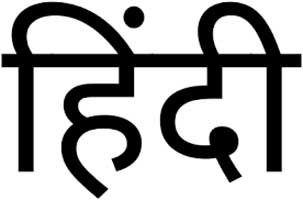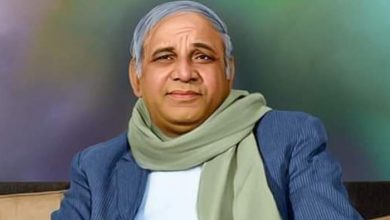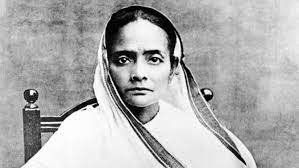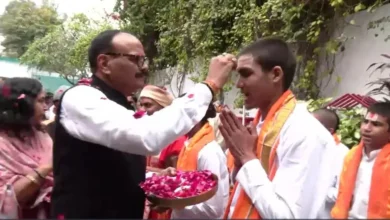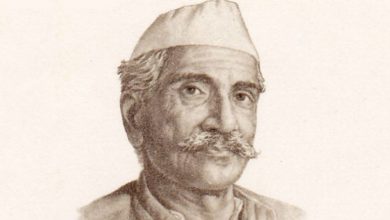Hindi as the Lingua Franca
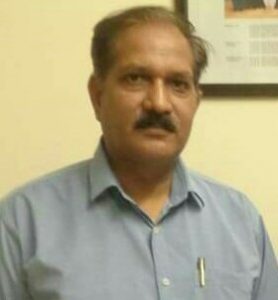
Hindi or Hindustani, because of its richness, popularity and wide use and acceptance, once held the promise of becoming the lingua franca of our country. But soon after Independence our leaders politicised the issue of the national language. This was primarily to allure the non-Hindi speaking people for political gains. It was politics with language that paved way for English to move parallel with Hindi. Today English has left Hindi behind in practically all walks of life.
According to Article 343/1 of the Constitution, the official language of the Union shall be Hindi in Devanagri script. However for a period of 15 years from the operation of the Constitution, the English language continued to be used for all official purposes of the Union.
Inconsistent approach towards Hindi
Four decades down the line, it continues to be so as a result of a series of amendments. Article 351 imposes a duty on the Union to promote the spread of the Hindi language, to develop it so that it may serve as a medium of expression for all the elements of India’s composite culture.
At the same time, there is a provision enshrined in our Constitution that even if a small State hesitates to consider Hindi as the official language, Hindi can never acquire the status of an official language.
This shows an inconsistent approach towards Hindi by the “well-wishes” of our nation. Hindi has always served as a glue for our diversity. Different language-speaking groups have contributed their mite to the evolution of Hindi.
People from all parts of the country, besides their regional languages, learned Hindi to join the national mainstream. It appeared to be “a mosaic of distinct cults, gurus, rishis, sufis, saints and kings “.
Use of Hindi by social reformers evoked huge response
Later, social reformers like Swami Dayanand Saraswati and great leaders like Mahatma Gandhi, Subash Chandra Bose, Nehru and posts like Tulsidas used and practiced Hindi in their discourses, as it evoked a huge response. Not only this even great writers, poets, journalists, teachers used Hindi, which was also the medium of instructions in schools, colleges and universities.
With the advent of the British, the language situation went bad to worse. And although the British have left, they are still governing us through their language. Some of the countrymen deliberately avoid Hindi in favour of English.
If they can learn English besides their own language, then why not Hindi? Their claim of being well- versed in English draw our attention to the Nehru family, among others.
But even the Nehru Gandhis communicated in Hindi with the people of India. They are not the only to be blamed, as there has been a mushrooming of English in the country.
question remains
But the question remains: What led to the decline of Hindi? For one, successive governments failed to promote Hindi across the country. The dismal performance of Government-run schools and institutions failed to impart quality education to move at par with the requirements of the world.
It has become a well-established concept that English is what English does, in this computer age, which compels students to make a beeline for English- medium schools and colleges. Students either going for higher studies or while facing interviews for jobs, face an uphill task because of their Hindi background.
The knowledge of English nowadays has become a symbol of modernity, a means to earn bread and butter.
We should learn English because of its international character, but not at the cost of our own language. Doing so leads to the degradation of traditional norms and values of our society, for which India has been known down the ages.
People from all walks of life should come forward with a pledge to revive Hindi at all levels, and to project our country in its true colour at all international fora.
All regional and national political parties should strive towards arriving at a consensus on this issue of vital national interest, keeping on the backburner their personal or hidden agenda.
Only such an approach will ensure that Hindi is not “officially” replaced by English in our country one day.

